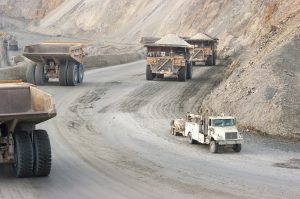At a time of global energy transition, the world is racing to secure critical mineral supplies such as cobalt, nickel, and lithium, so much so that critical minerals security has turned into a strategic geo-economic issue. The electric vehicle (EV) market alone saw unprecedentedly rapid growth of 60 percent in 2022, exceeding 10 million units globally.
Meanwhile, the production of critical minerals is rather concentrated: around 70 percent of global production of cobalt takes place in the Democratic Republic of Congo, while 60 percent of rare earth minerals are produced by China. China also plays a pivotal role in the process chain of critical minerals, mainly copper, nickel, cobalt, lithium, and rare earth elements.
Furthermore, the COVID-19 pandemic exposed the vulnerability of global supply chains. This motivated major importers to take steps to secure supply chains, including for critical minerals. For example, Japan has emphasized technological innovation and the diversification of its international critical minerals partnerships.
The European Union, meanwhile, has attempted to leverage its battery component manufacturing capacity, while also encouraging the ethical supply of minerals. The United States has adopted a more competitive and alliance-oriented strategy, particularly against China. While the U.S. currently lacks domestic supply and production, it has focused more on industrial competitiveness by nurturing innovation in clean energy technology.
In general, we are seeing a trend where the industrialized world is racing to secure critical minerals and reduce its dependence on China by playing on its respective strengths and widening cooperation with developing countries endowed with critical mineral resources. Indonesia, home to abundant deposits of critical minerals, is not exempt from this competition, so it needs to think strategically about how to win the critical mineral race.
Indonesia’s Strategy in the Critical Minerals Race
Indonesia has sought to get ahead in the global critical minerals race by banning the export of nickel ore in January 2020 to strengthen the value-added upstream of the supply chain. The country also proposed a limited free trade agreement with the United States, particularly on critical minerals, to support Indonesia’s position as the largest nickel producer and its aspiration to build downstream EV industries by lobbying Biden’s administration to enable Indonesian companies in the EV supply chains to benefit from the US tax credits. Indonesia also provided tax incentives to attract EV investments in the country.
While the export ban was a smart move, Indonesia still needs to assess the whole value chain, including measuring the real added value generated from nickel smelter operations and how it will shape nickel’s downstream industries, including the EV battery industry. Complementing the nickel export ban with tax incentives for EVs does not address the whole value chain bottleneck in the EV ecosystem in Indonesia at the moment, such as the lack of charging station infrastructure, the lack of highly skilled human resources, suboptimal industrial safety and environmental standards, the relatively low proportion of renewable energy in the country’s energy mix, and many other challenges.
Indonesia can and should do so much more to improve its competitiveness.
Indonesia’s Way Forward
Indonesia could leverage its economic growth potential, which is currently among the greatest in the world, by diversifying away from exporting processed ores, committing to green growth, and investing in renewable energy. At the moment, Indonesia’s domestic energy market is highly regulated and predominantly monopolistic, which hinders the growth of independent renewable energy producers. On the contrary, renewable energy companies face multiple barriers to entry due to regulation constraints on grid installation and high capital costs, while facing an uncertain return on investment.
Indonesia should focus on addressing its energy investment barriers to enable its clean energy industries to thrive, which would also benefit its critical mineral mining and processing industries. By focusing on the domestic supply of critical minerals for national renewable energy projects, Indonesia can potentially reduce the cost volatility and foster further interconnection between the upstream mining industry and the downstream EV industry.
Furthermore, Indonesia can also strive to raise the bar on mining practices, including for critical minerals, and align them with international standards such as EITI (the Extractive Industry Transparency Initiative) and ICMM (the International Council on Mining and Metals). This would not only mean increased industrial competitiveness by appealing to the Western market; it would also provide an advantage in comparison with deep-sea mining.
At the moment, companies around the world are also racing to get involved in deep-sea mining – an attempt to explore and mine the Pacific Ocean seafloor for manganese, nickel, copper, and other trace minerals needed for the green energy transition. However, given that around 80 percent of oceans remain unexplored, scientists are still researching the potential negative impacts of the practice. Given the unknown consequences of the practice, Indonesia could gain an advantage in the critical mineral race by committing to high standards of practice for land-based critical mineral mining, where environmental and social risks are known and can be mitigated.
By capitalizing on its natural advantages, Indonesia could become a critical minerals and green economy powerhouse. As decarbonization efforts ramp up globally, Indonesia could be supplying its clean, green resources and products to the world. The critical minerals industry has the potential to transform Indonesia into a top destination for sustainable investment and is a better alternative to deep-sea mining.
The opportunities are enormous, now it is all about ambition and acting with the urgency that the global climate challenge requires.

































